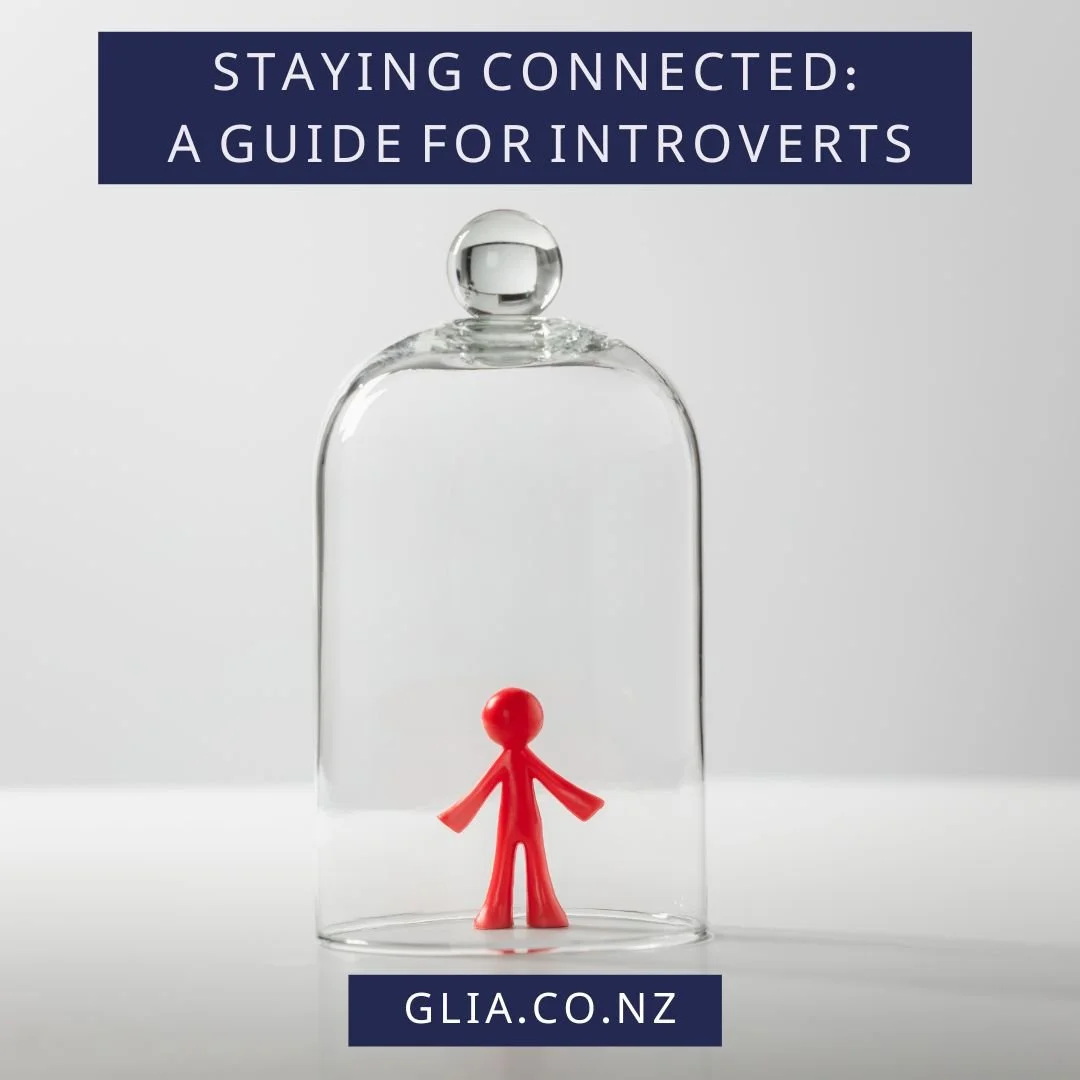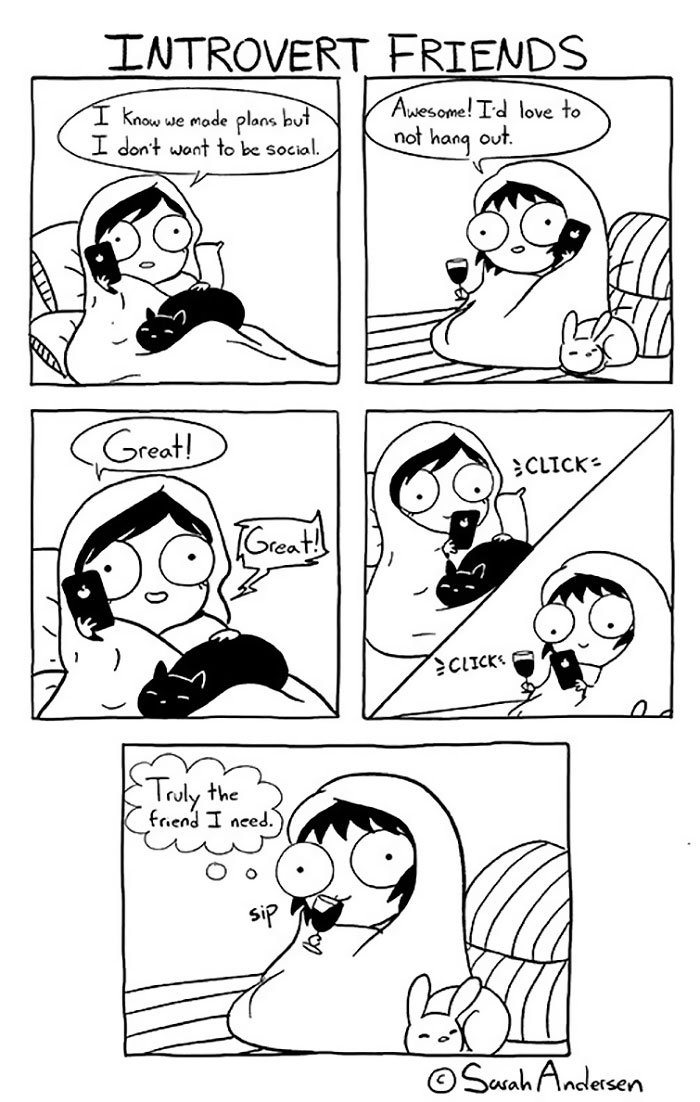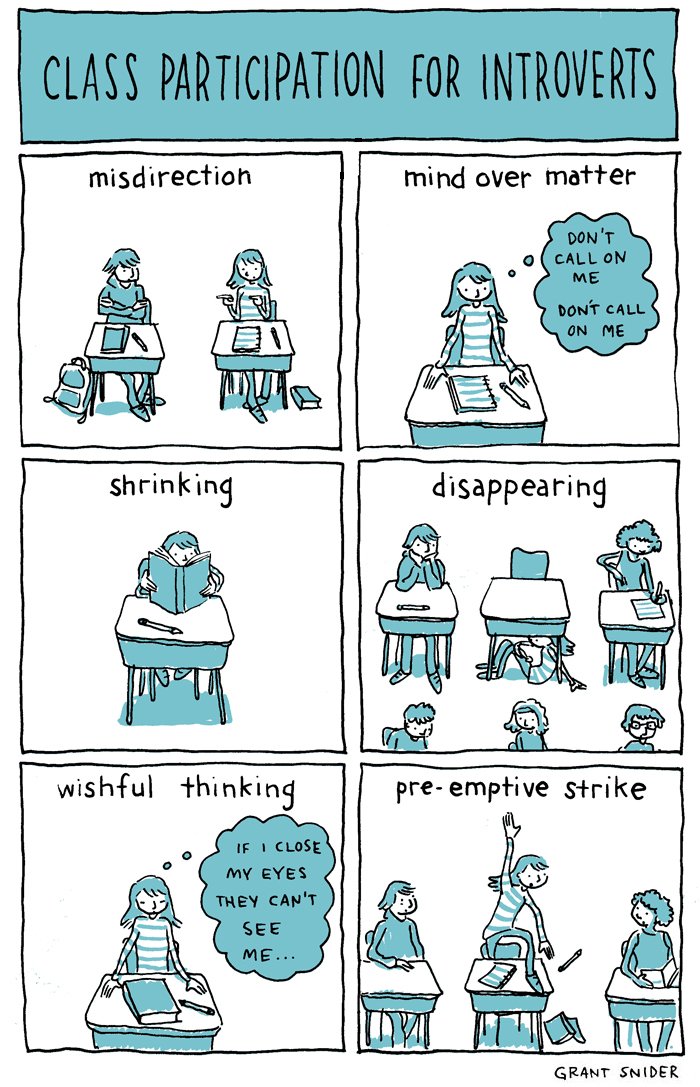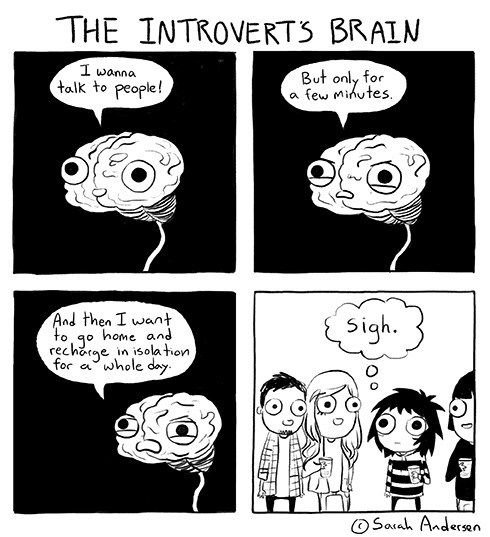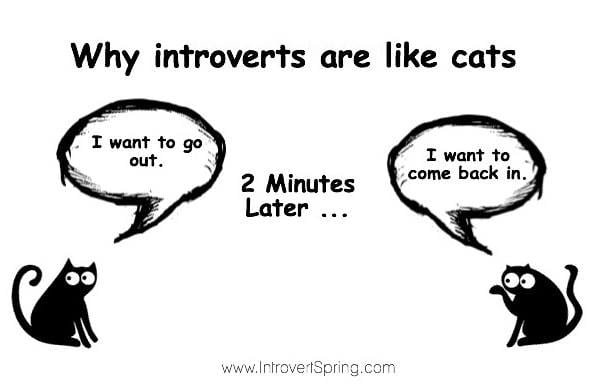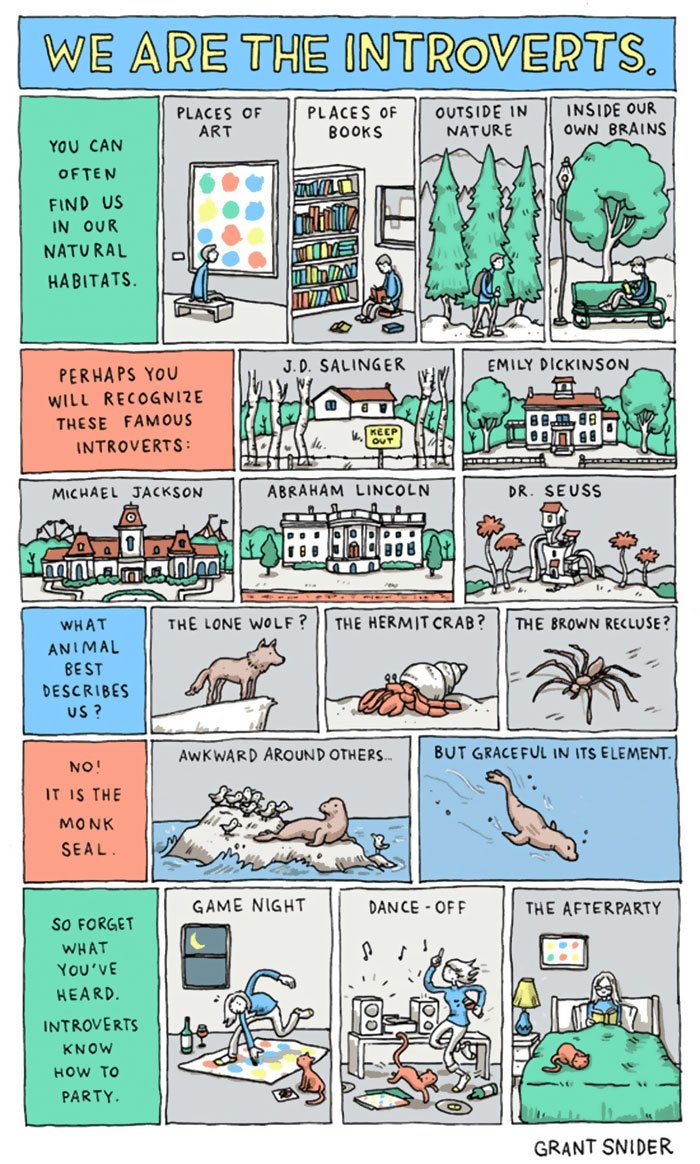Mental Health Awareness Week 2022 has just come to an end. The theme this year was ‘Reconnect - with the people and places that lift you up, hei pikinga waiora.’
The positive mental health benefits of connection are clear.
Research has found that:
Happier people tend to have strong social relationships
Social networks promote a sense of belonging and wellbeing
People with a higher number of close connections (three or more) were found to have a lower incidence of mental health conditions.
You can explore some of the research on this via the MHAW website here
But how can this help people who struggle to stay social?
Image credit: Sarah Andersen https://sarahcandersen.com
Is Connection only for Extroverts?
If you’re anything like me, the thought of ‘friendlier streets and neighbourhoods’ will make you want to break out in hives. A casual invitation to a neighbourhood street party? No thank you. I’d rather sit at home alone with my cat, a delicious meal for one and a good book (or a Netflix subscription).
Does that mean I’m doomed to be somewhat less happy than my more extroverted colleagues and neighbours?
Perhaps. But fear not, fellow introverts. Just like staying physically active for health doesn’t need to involve hitting the gym 5 days per week, staying connected doesn’t mean forcing yourself to party like it’s 1999 (newsflash: I didn’t party in 1999 either).
Image Credit: Cyanide and Happiness https://explosm.net
Five Ways to Connect that Don’t Involve Parties
Go Deep
A 2010 study that eavesdropped on participants conversations found that substantive (deeper) conversations were associated with higher levels of happiness than small talk. Of course, this could partly be down to spending a higher proportion of time with people whom we feel a more intimate connection, such as close friends rather than passing acquaintances. Nonetheless, this could be welcome news for introverts.
Next time you’re around the water cooler with your colleague, rather than sticking to chat about the weather throw in some substantive conversation starters.
A quick Google search on conversation starters brought up a few good ideas: ‘if you could time travel a week into the past or a week into the future, which would you choose and why?’ ‘what is the worst advice you have ever taken?’ ‘if you could erase a single belief that you carry, what would it be?’
Try it. You might deepen your social connections, or at least narrow them down to like-minded folk.
Artist credit: Sarah Andersen https://sarahcandersen.com
Go Clubbing (hear me out on this one)
Socialising can feel overwhelming, particularly when you have anxiety around striking up conversations with new people or being part of a larger group. One way to overcome this is to get your social interaction from organised events, particularly when the nature of the event allows for a high degree of personal space.
For example - adult education such as art classes or a reading group are usually set-up classroom style, where you have your own desk, space to focus on the activity at hand and limited eye contact. Some physical activities like kayaking, paddle boarding, diving, and climbing allow for participants to be ‘alone’ in a group setting with optional closer contact.
If an in-person activity feels like too much, try joining an online book club (these are usually free!).
Artist credit: Grant Snider http://www.incidentalcomics.com and https://www.grantsnider.com
Give to Others
A higher purpose could be the boost you need to take the first steps to connection. Try volunteering. It needn’t be in a crowd.
I’m based in the UK, and volunteer for the Cinnamon Trust, an organisation that matches the elderly and terminally ill with people who can help them to keep their pets. For me that involves walking a 16-year-old Labrador once per week for his housebound owner. Both me and the owner get a little socialising with each other, and the Lab gets a walk. Win-Win.
In the past I have also volunteered to collect food donations and cook for low income people - this is a nice option for an introvert, because you can low-key chat to the people around you whilst getting on with work in your own space and keeping your hands active which can help to reduce anxiety (e.g peeling potatoes).
In NZ, http://shantiniwas.org.nz, age concern, the Selwyn Foundation Caring Caller and KiwiHarvest are some options.
Image Credit: Sarah Andersen https://sarahcandersen.com
Go Gaming
Mark Griffiths, Director of the International Gaming Research Unit at Nottingham Trent University first got into Gaming research in the 80s, with a PhD on the addictive properties of slot machines. Since then, gaming has come a long way, but some of the stereotypes around gamers being socially isolated ‘loners’ have stuck around. According to Griffiths, these stereotypes are outdated, and multiplayer online role-playing games such as World of Warcraft ‘were highly socially interactive environments providing the opportunity to create strong friendships and emotional relationships.’
Like any other activities, extremism can become problematic, but, numerous studies around the use of video games for socialising throughout the pandemic have shown the protective power of gaming.
Maybe it’s time to get your inner-Wizard out and try a bit of online role-play.
Image credit: Connie Sun https://www.conniewonnie.com
Get Outdoors
This year’s Mental Health Awareness Week is about Reconnecting. That doesn’t just mean with other people. The foundation of MHAW is Te Whare Tapa Whā, a Māori model of mental health that describes our wellbeing as a wharenui with four walls; supported by whenua, the land and our roots. We can reconnect with ourselves and the things that bring us peace, joy and a sense of spiritual calm (te taha wairua). We can reconnect with our bodies (te taha tinana). We can reconnect with our mind and emotions and the things that give us a sense of mental spark, flow and purpose (te taha hinengaro). We can reconnect with our friends, family and community (te taha whānau). And we can reconnect with our whenua - our land, our roots, the places where we feel at home and a sense of belonging.
These types of connections can take place without any talking at all, and can be excellent ways for introverts to recharge their social batteries.
Artist credit: Introvert Spring https://introvertspring.com
Are you an introvert who struggles to stay connected? We’d love to hear what works for you. Drop your tips in the comments below.
Artist credit: Grant Snider http://www.incidentalcomics.com https://www.grantsnider.com

